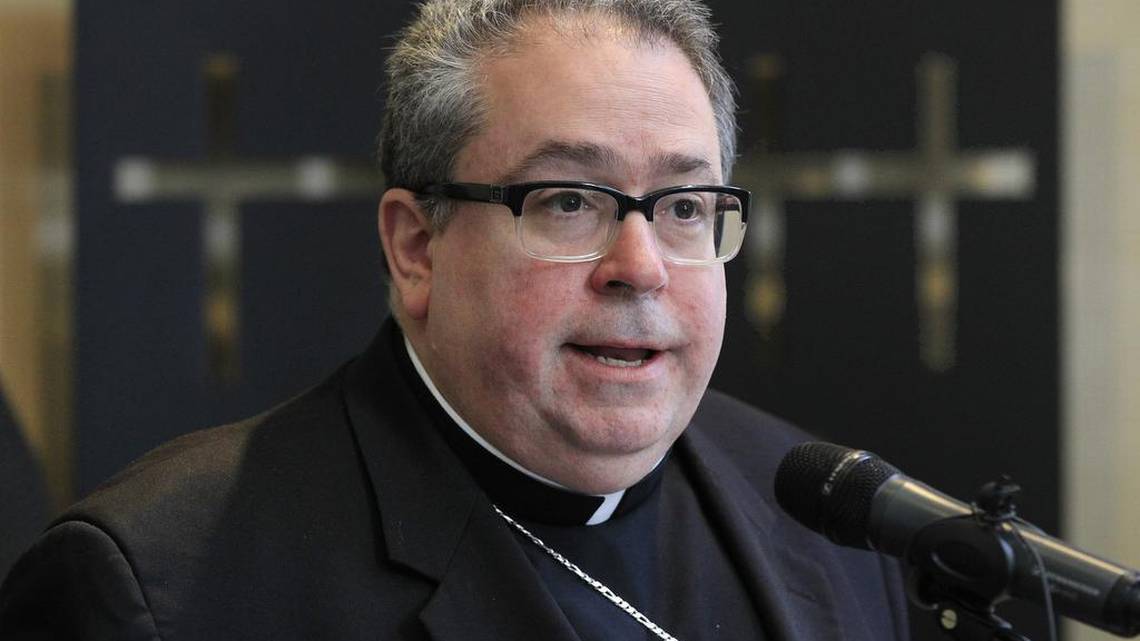If Bishops Fail to Reform Church, Someone Else Will. Houston May Be Proof
By Cynthia Allen
This week in Houston, state prosecutors investigating a case of sexual abuse by a Catholic priest searched the offices of the local archdiocese. They were seeking employment and disciplinary records for Manuel La Rosa-Lopez, who stands accused by two people of fondling them two decades ago when they were teenagers. “This is not a search warrant against the Catholic Church,” said Montgomery County District Attorney Brett Ligon, who is leading the investigation. The archdiocese says it has been cooperating, and was quick to contend that this was not a raid. But watching footage of gun-toting law enforcement officers walk in and out of the Archdiocese of Galveston-Houston headquarters, it sure felt like one. And even I — someone who has previously called on secular authorities in Texas to investigate the Catholic Church, as several states are already doing — felt uneasy and heartbroken watching it. This is not what so many Catholics want for their church. But it is what decades of failure and apathy by Church leadership has come to. #READLOCAL The Catholic Church in America is still in the thick of a major sexual abuse scandal — the second in as many decades. Like the crisis of the early 2000s, this scandal involves malfeasance within the ranks — not just abuse by priests, but cover-ups, and much worse: the continued promotions of known predators. A meeting earlier this month of the U.S. Conference of Catholic Bishops, the governing body of the American Catholic Church, was supposed to have addressed all of this. Indeed, faithful around the country were awaiting the bishops to agree upon and begin implementing concrete solutions that would address the rot in the Church hierarchy. But an eleventh-hour directive from Rome, instructing the bishops to delay any consideration of two proposals that would have formed the American Church’s substantive response to the crisis, abruptly aborted any attempt at reform. The Vatican, it seemed, reserved the right to address the sexual abuse crisis at its own synod next year, as perhaps it should; but should that be mutually exclusive of the U.S. bishops’ efforts to take action now? I think not. And so the USCCB meeting lost its reason for being and devolved into a hapless event — a lot of sound and fury signifying nothing. Or as Fort Worth Bishop Michael Olson aptly summed it all up, complaining about the body’s failure even to pass a resolution urging the Vatican to release documentation related to the Cardinal Theodore McCarrick investigation: it “appears like we’re doing something when in fact we’re not.” In a sense, the debate over how to reform the Church is not unlike our national debate about immigration — which, allowed to fester for too long, gave rise to Trump-like populism. When responsible leaders fail to address an issue, eventually less responsible ones arise who do. To date, at least seven states’ attorneys general have opened criminal investigations into the Church. An investigation by the Pennsylvania attorney general, concluded over the summer, essentially forced into retirement one of the most powerful Cardinals in the United States: the Archbishop of Washington, D.C., Donald Weurl, formerly the Bishop of Pittsburgh. Many faithful Catholics worry about what happens when secular authorities investigate the Church. I worry, too. And many leaders in the Catholic Church, including Olson, have taken tangible steps (and commensurate actions) to combat abuse. For their part, all of the Texas bishops have agreed to make public a comprehensive list of priests who have been “credibly accused of sexually abusing minors by the end of this coming January.” These efforts at reform deserve recognition. But for a church in crisis, it will hardly be enough. Make no mistake: If the Vatican and U.S. bishops don’t act to fix this, someone else will. And they may not like the solutions.
|
.
Any original material on these pages is copyright © BishopAccountability.org 2004. Reproduce freely with attribution.
